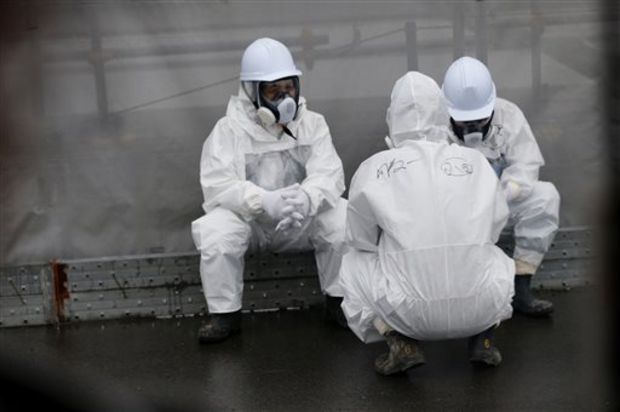-
Tips for becoming a good boxer - November 6, 2020
-
7 expert tips for making your hens night a memorable one - November 6, 2020
-
5 reasons to host your Christmas party on a cruise boat - November 6, 2020
-
What to do when you’re charged with a crime - November 6, 2020
-
Should you get one or multiple dogs? Here’s all you need to know - November 3, 2020
-
A Guide: How to Build Your Very Own Magic Mirror - February 14, 2019
-
Our Top Inspirational Baseball Stars - November 24, 2018
-
Five Tech Tools That Will Help You Turn Your Blog into a Business - November 24, 2018
-
How to Indulge on Vacation without Expanding Your Waist - November 9, 2018
-
5 Strategies for Businesses to Appeal to Today’s Increasingly Mobile-Crazed Customers - November 9, 2018
Fukushima: First case of cancer reported following nuclear disaster
Worldwide Atomic Energy Agency investigator assessing the damage done to Reactor Unit 3 at Fukushima plant.
Advertisement
Dr. James O’Donnell of the Case Medical Center at the University Hospitals in Cleveland said that the exposure of the worker to radiation had only slightly increased his risk of getting cancer but it was a huge leap to say that his cancer was linked with the Fukushima incident.
Fukushima, Japan – The Japanese government has granted workers’ compensation to a man who developed leukemia after working on a cleanup crew at the ruined Fukushima Daiichi nuclear-power plant.
Japanese authorities confirmed Monday that a worker involved in clean-up operations at the affected site was diagnosed with blood cancer. According to official reports, the worker is a 41-year-old man from the city of Kitakyushu in Japan.
His exposure to radiation exceeded the safe limit since it reached 19.8 millisieverts.
The announcement Tuesday will likely further inflame widespread public opposition to nuclear power, and comes less than a week after Japan restarted a second nuclear reactor following a shutdown of all plants after by the Fukushima crisis.
The health ministry’s recognition of radiation as a possible cause may set back efforts to recover from the disaster, as the government and the nuclear industry have been at pains to say that the health effects from radiation have been minimal.
A massive natural disaster and tsunami damaged the Fukushima Daiichi plant a few years ago. When the meltdown was eventually contained, there was a 12-mile evacuation zone around the plant.
Radiation was released into the air, sea and food chain in the worst nuclear accident since the 1986 Chernobyl disaster. Cleanup operation started five months later. Seven have had their cases dismissed, while three are still pending. The company said that it hired the man via a subcontractor.
At the time of the nuclear reactor flooding and radiation leakage, with many heroic workers toiling to stave off an environmental catastrophe, it was predicted that many so exposed would suffer acute or lingering radiation toxicity, especially cancers of various types known to be linked to radiation.
Nevertheless, the company declined to associate Yoshida’s death to the clean up operations. Only a labor standards supervision commission can.
“While the causal link between his exposure to radiation and his illness is unclear, we certified him from the standpoint of worker compensation”, Kyodo quoted an official – who can not be named for legal reasons – at the Health, Labor and Welfare Ministry.
Advertisement
“A breakdown of data, based on age, gender and proximity to the nuclear plant, does show a higher cancer risk for those located in the most contaminated parts”.





























